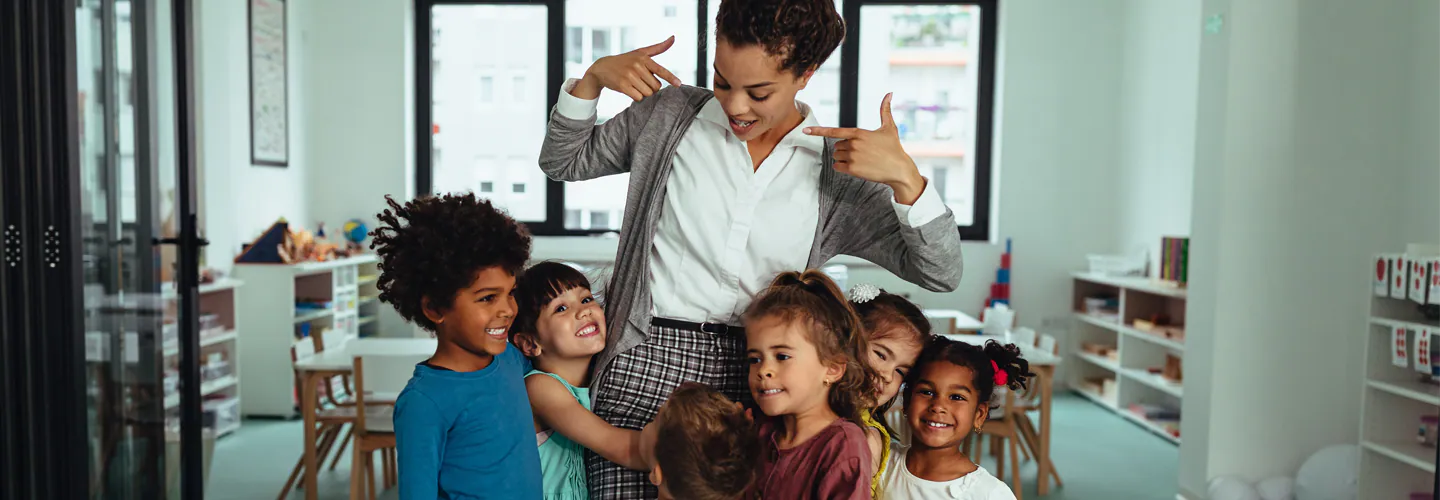How to use praise to motivate your students

Praise in the classroom is a valuable resource that every teacher has in their toolbox. It can encourage struggling students and reward learners who have been studying diligently and working hard on their language skills.
But not all types of praise have the same effect. Let’s take a look at different types of praise and how you can use it to boost your learners’ motivation and self-esteem.
Different types of praise in the classroom
There are three types of praise that teachers commonly engage in – but they’re not all equal and are not all desirable:
- Personal praise: Here you praise a student for a specific ability or quality. For example, you might say something like, “You have a great memory for vocabulary”.
- Effort-based praise: This is when you comment on a student’s efforts. For example, you could say, “I can see you tried really hard with this vocabulary homework – well done.”
- Behavior-based praise: This type of praise is where you comment on how a student is acting, an example would be, “You were really paying attention during the vocabulary lesson – good job.”
So how – and when – should we use these types of praise in the classroom?
Try not to praise ability
Try not to praise ability
The first type of praise – personal praise – should be avoided in the classroom. Research has shown that this type of praise doesn’t have a beneficial effect on motivation.
In fact, praise for intelligence actually has a detrimental effect on student achievement. When students were praised for their intelligence, they tended to care more about their performance goals – the score they achieved on a test, for example. Learning goals, like mastering a new skill, became less important to them.
Moreover, personal praise has been shown to undermine student resilience in the face of failure. Students showed less persistence when it came to challenging tasks and less enjoyment of the challenge. They also performed more poorly than children praised for effort.
Furthermore, when you praise students for their ability, they also tend to see intelligence or aptitude as a fixed trait. However, students who are praised for effort are more likely to see ability as something they can improve on. This feeds into the development of a growth mindset vs a fixed mindset. It’s important to instill a growth mindset in learners to enable them to reach their full potential.
How to praise effort and behavior
When it comes to praising effort and behavior, what’s the most effective way to do it? Here are some techniques to employ:
1. Be specific
General praise such as “Good job” isn’t nearly as effective as a comment that shows you’ve been paying attention to what the student is doing. A precise compliment will make a much bigger impact on a student, for example: “I was really impressed at how hard you concentrated during the listening exercise. Well done.”
2. Give praise in the moment
Immediate praise doesn’t need to be disruptive, but it shows students that you are paying attention and noticing good behavior and effort.
3. Avoid comparisons with other students
Instead of saying, “You got the best mark in the class – well done!” say something like, “You got a really high score in the reading test. Your hard work has really paid off this term.”
4. Keep track of praise
Before your class, choose three or four students you’re going to praise that day. That way, you can be sure that each and every student will benefit from the motivational power of effective classroom praise!
5. Personalize your praise, depending on the student
Young students enjoy being praised publicly, but shy students, older children and teenagers prefer positive feedback to be given quietly.
Don’t overpraise and watch your positive bias
It’s important to be sincere. Older children, especially adolescents, have an extremely low tolerance of insincerity. So, don’t be tempted to praise students too often, or too effusively – it can actually have a negative impact on your relationship with your whole class. Insincere praise can lead students to question your judgement.
It’s also really important to be aware of your positive bias. Studies have shown that teachers consistently give students of color more positive feedback on their work. It’s done with good intentions, but it can actually be harmful. If you regularly overpraise students for minor achievements, it can imply that you have low expectations for these students. And, this can make your students feel like they might not be capable of fulfilling the high expectations that you should have of them.
So, instead of overpraising, focus on giving specific, immediate praise to motivate your students, boost their self-esteem and unlock their potential.
Find out how to nurture creativity in your learners and this post will tell you how to promote student happiness and wellbeing.
It sounds obvious, but remembering to say ‘please’ and ‘thank you’ will…
STEAM (Science, Technology, Engineering, Art and Maths) sounds like an overwhelming combination…
Praise in the classroom is a valuable resource that every teacher has…
There are some common myths related to critical thinking and assessment. Many…
How much of your valuable time is spent on planning and administrative…
Charlotte Guest April 1, 2025 Reading time: 3 minutes It’s April Fool’s Day…

Боловсролын хөтөлбөр, олон улсын шалгалт, сургалт, багшийн хөгжлийн зөвлөх үйлчилгээ үзүүлэгч байгууллага
Шуурхай холбоос
Бидэнтэй холбогдох
- Ай И Ди Си, Эрдмийн Ордон, 1204 /PTE Academy-1301/ тоот, Сүхбаатар дүүрэг, Сүхбаатарын Талбай 20/8, Улаанбаатар, Монгол Улс 14200
- info@iedc.edu.mn
-
+976-7611 7500
+976-7505 7600 /PTE Academy/
Ажиллах цагийн хуваарь
- Даваа - Баасан ( 08:00 - 17:00 )
- Бямба, Ням ( Амарна )





